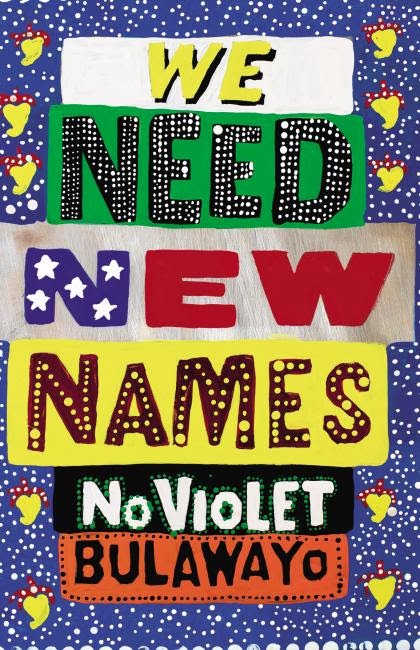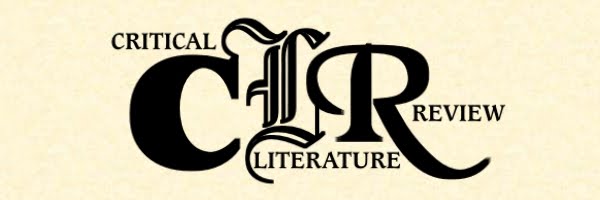“If you are stealing something it’s better
if it’s small and hideable or something you can eat quickly and be done with
like guavas. That way, people can’t see you with the thing to be reminded that
you are a shameless thief and that you stole it from them, so I don’t know what
the white people were trying to do in the first place, stealing not just a tiny
piece but a whole country.” (pg. 20)
 I fell in love with almost everything in
this book. Above all, I swooned for its diction. It is simple yet engaging. You
would too when you read it. Bulawayo really has an engaging way with language.
In this book, the language is not just a means of communication but the stories,
the characters even. The language becomes the narrator and the narrator just a
character. In literature, this is what is called an indirect characterization.
With it, we know the characters not only by how we are told they are but by
their personal nuances. In “We Need New Names”, characters are
mostly known for their language property. As Darling changes borders, as her
life becomes less starved, as she begins living out her dreams, as she battles
with adolescence and making meaning of her worlds and making memories of home;
her languages are many. She is her words. Words really are character
developers. When she speaks here you could tell who she is and her condition:
I fell in love with almost everything in
this book. Above all, I swooned for its diction. It is simple yet engaging. You
would too when you read it. Bulawayo really has an engaging way with language.
In this book, the language is not just a means of communication but the stories,
the characters even. The language becomes the narrator and the narrator just a
character. In literature, this is what is called an indirect characterization.
With it, we know the characters not only by how we are told they are but by
their personal nuances. In “We Need New Names”, characters are
mostly known for their language property. As Darling changes borders, as her
life becomes less starved, as she begins living out her dreams, as she battles
with adolescence and making meaning of her worlds and making memories of home;
her languages are many. She is her words. Words really are character
developers. When she speaks here you could tell who she is and her condition:
“We
all find places, and me, I squat behind a rock. This is the worst part about
guavas; because of all those seeds, you get constipated once you eat too much.
Nobody says it, but I know we are constipated again, all of us, because nobody
is trying to talk, or get up and leave. We just eat a lot of guavas because
it’s the only way to kill hunger, and when it comes to defecating, we get in so
much pain it becomes an almost impossible task, like you are trying to give
birth to a country” (pg. 16)
And when you encounter her again
here, you needn’t be told her world’s changed. Words are that revealing:
“The
teasing stopped only when Tom joined our class; I don’t know where he came from
but he came with these crooked teeth and long, greasy hair and these large
glasses and this sad stutter. Somehow he made them forget about me and I almost
felt like thanking him for it. I remember they teased him harder, maybe because
he was a boy. I remember they always wanted him to fight and called him freak, which I had to Google since I had never
heard the word before…” (pg. 106)
The book could appear grim at the
start. As Darling, Chipo Bastard, Godknows, Sbho and Stina shuffle around in
hunger, poaching around for food and managing boredom, everything is stark
hopelessness. You may wonder who these children meandering around homeless and
roving Budapest for guavas are. You may even question Chipo’s pregnancy. It is
only when you get to Real Change that answers to those
may be provided. The book does have its chain of causes well laid out. Nothing is
desperate. Nothing is patronizing. When I first read Hitting Budapest, a
section in the book, as a short story on the Caine shortlist, I wondered at the
demeaning uncertainty it portrayed. There was just no backlink to the story.
The story was just not convincing beyond the desperation to make horrible and enforce
weepy characters. Then, I labelled it desperate. However, just as many were soon
to discover with the publication of the book, I was in the wrong. Perhaps, that is a big problem with submitting
an excerpt of a longer story, of a book in progress, for a competition. But it
worked for Bulawayo anyway. It gave her a winning and a head start for her new
book. However, her critics were only done for with their tired sophistry and shoogly
views, shrilling about how stereotypes in African stories must stop. SMH.
Bulawayo really pulls it off with
How
They Left. That part of the book does serve as a good plot divider. How
They Left takes the reader
into the changed world of Darling. In this world, we begin to see how everything
gradually upturns in Darling’s endearing vision of America. And when you come
to the next part of the book, titled DestroyedMichygen, subtle presages of what
are to come to Darling are not lost on you. I just love this book! I hope
somebody who’s read it does too. Do you? However, as the book sets in America,
it begins bleeding itself as some parts only whine on and on about immigrant
tired troubles. Really, I am already bored to anger reading these commonplace immigrant
troubles. When you read a part like How They Lived, its pure bellyaching butt-scratching shrill is ordinarily obvious.
Darn! What’s that really? It is just shrilling, squawking, and loud sulking.
This here only wants to make you rip out some pages out in the book:
“How
hard it was to get to America – harder than crawling through the anus of a needle.
For the visas and passports, we begged, despaired, lied, groveled, promised,
charmed, bribed – anything to get us out of the country…. And when we got to
America we took our dreams, looked at them tenderly as if they were newly born
children, and put them away; we would not be pursuing them… Instead of going to
school, we worked. Our social Security cards said ‘Valid for work only with INS
authorization’, but we gritted our teeth and broke the law and worked….” (pg.
240-242)
“We Need New Names” is
filled with many themes evenly knitted with the main story. You will certainly
relate with it. Of infantile innocence in terrible situations, of the longing
for home and personal reinvention, of numbing oneself to pains and gaining
newer experiences, of stitching cures in strange lands, of adolescence and
hormonal confusion: there is a story for everyone. Really, you can’t just be
bored reading this book. I could relate with Darling and her oyinbo friends. Mind
you, don’t get me wrong. I am just one who also has once got teenage rampaging
hormone. Hehehehe. *winks*
“I
am looking at her purple high-heeled shoes and wondering how anyone can stand
on those things. The boy comes up behind her, his thing like a snake in front
of him. I reach forward and click on Mute because when the real action starts
we always like to be the soundtrack of the flicks. We have learned to do the
noises, so when the boy starts working the woman we moan and moan and we groan,
our noise growing fiercer with each hard thrust like we have become the woman
in the flick and we are feeling the boy’s thing inside us…” (pg. 201-202)
Have you read this book? Let’s
talk about it. I want to know what you think.
*****
Follow me on Twitter @omotayome
·
Next on CLR: Molara
Wood’s Indigo, Taiye Selasi’s Ghana Must Go, Igoni Barret’s Love
is Power or Something Like That.























